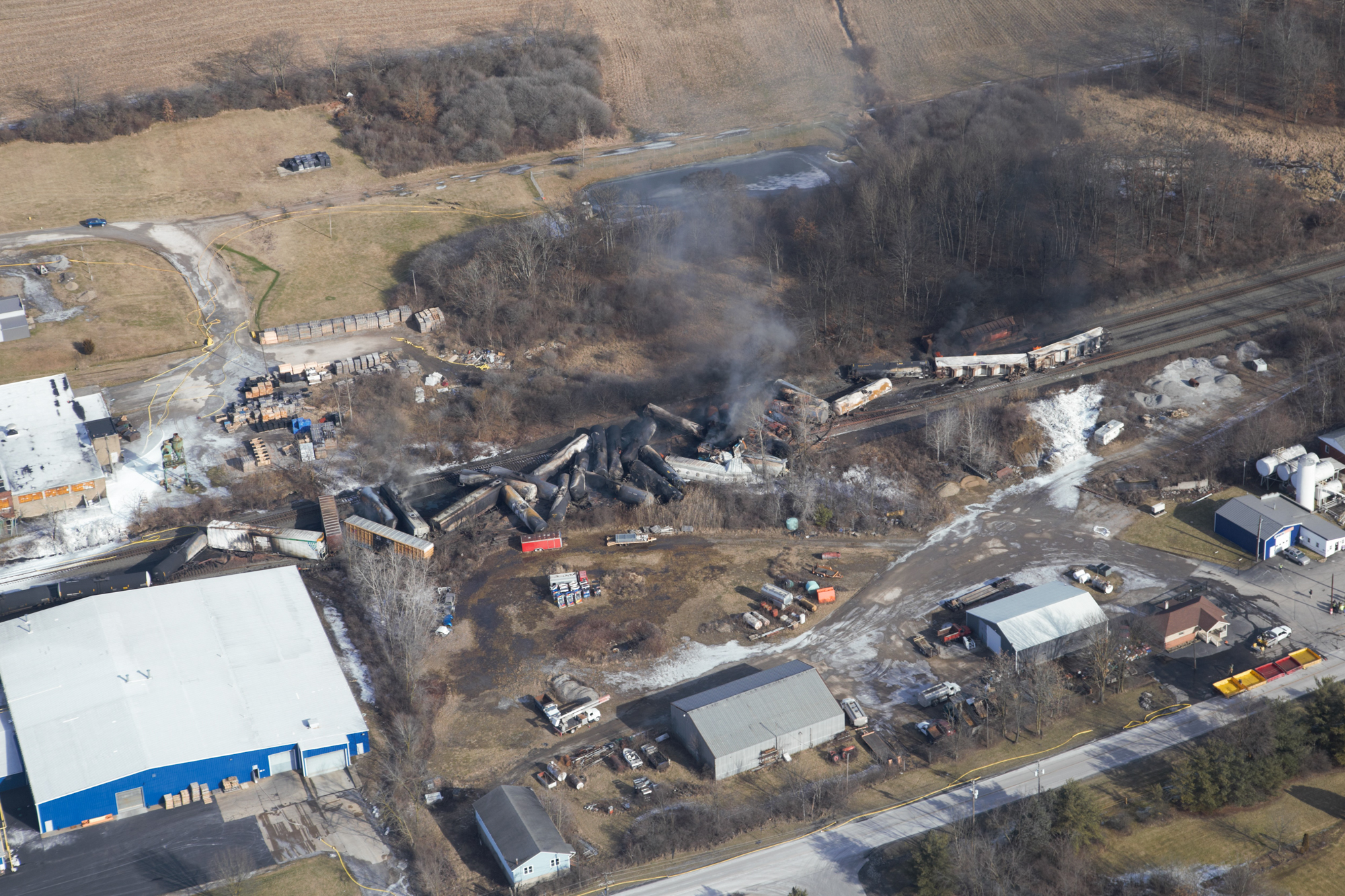Views expressed in opinion columns are the author’s own.
I just found out Evan Lambert, the journalist arrested at a press conference on the Norfolk Southern train derailment in East Palestine, Ohio, is a University of Maryland alum. It’s cool to see where alumni pop up, but I’m upset his arrest turned into something of a spectacle.
While the charges were dropped with the support of Ohio Gov. Mike DeWine, this incident reeks of preformative optics.
I’m not saying his arrest was a conscious decision by a sheriff’s deputy and police officer based on trying to cover up ugly facts, but if officials like them didn’t see optics as important, I don’t think a journalist would’ve been arrested at a press conference for literally doing his job. This action seemingly indicates that on some level, members of government care more about how they look than actually making solutions.
Government officials, including civil servants, should stop distracting citizens with performative stunts to avoid responsibility when clear failures have happened. Instead, they ought to acknowledge their mistakes and fix them. Frankly, I think owning up to mistakes would make them more likable and better at their jobs in general.
Prioritizing optics to possibly protect their public image should not be the framework from which the officials entrusted with public safety should operate. When they do, it undermines public trust and enables future incidents to occur, such as a second Norfolk Southern train derailment in Springfield, Ohio, a month after the one in East Palestine.
Remember when DeWine drank East Palestine water to prove to residents it was safe? The report by AECOM, Norfolk Southern’s private consulting company, found no dangerous contaminants in the water, but residents remain skeptical and experts say long-term testing needs to be done. East Palestine residents are truly concerned for their health and DeWine’s stunt did little to reassure them — it just made him come across as dismissive, condescending and even a little stupid.
DeWine potentially compromised his own health while simultaneously ignoring residents’ concerns. Just because he seemed fine immediately after he drank the water doesn’t mean he’ll be fine years — or even hours — later. Furthermore, the effects of chemicals in water are very different for someone who only takes one sip, compared to those who need to drink, bathe and cook with it day in and day out.
The truth always comes out eventually, but in the meantime, human lives can be significantly shortened or burdened by these unintentional coverups. The Ohio River connects to the Mississippi River, and while officials believe there is limited risk to drinking water in the Ohio River basin, the contaminants are still flowing downstream.
In the end, the Environmental Protection Agency ordered Norfolk Southern to clean up the chemical spill in East Palestine, but too much time was wasted getting to that decision with DeWine’s antics. It’s possible the bulk of remaining contaminants in water have already dispersed across several states.
If DeWine had avoided superficial attempts at saving face — and instead directed that effort into investigations and into clean-up as soon as the incident occurred — who knows how much harm could have been mitigated, both in the short and long terms.
Instead of drinking some town water and arresting journalists, officials should’ve started investigations and cleanup immediately and told residents the truth about their situation — even through the lack of clarity. This could’ve mitigated and prevented future tragedies, and other officials should take note.
Personally, I have much more respect for people who acknowledge mistakes and try their best to fix them than those who try to say a problem isn’t as bad as it is. This is something I strive to do in my personal life, as instilled in me during my childhood in Ohio. If Ohio officials are scared of being associated with disasters because of damage to their political careers, they should perhaps not be in politics in the first place.
Yes, an argument can be made that DeWine isn’t personally responsible for Norfolk Southern’s train accident, but he’s absolutely responsible for coordinating the state’s response.
Journalists and investigations are a critical part of these responses. Not gathering enough information in the short term means weaknesses can’t be fully identified and similar problems might not be prevented later, such as that second Norfolk Southern train derailment. If this train had been carrying any dangerous chemicals, I fear there would’ve been more beating around the bush instead of getting down to work.
We’re all human. That means I can’t expect officials to foresee all potential disasters, or even have the expertise to see some obvious ones. But when they do happen, I expect a commitment to transparency and information gathering to prevent similar tragedies.
This goes beyond allowing journalists to work unrestricted or drinking potentially contaminated water. This is ultimately about being a decent human being.
Jessica Ye is a junior economics and government and politics major. She can be reached at jye1@terpmail.umd.edu.



